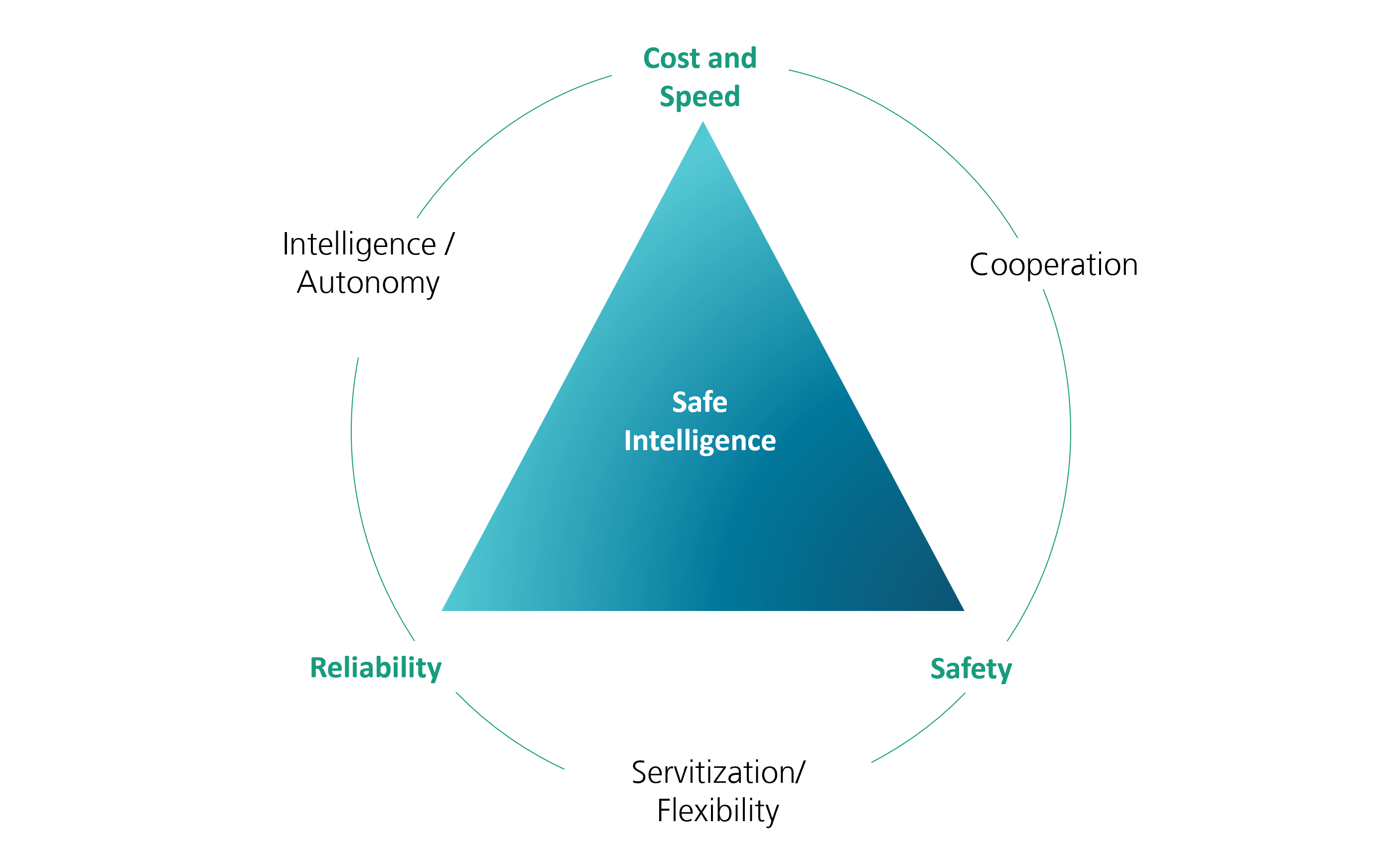In the defense domain, operational contexts are inherently unpredictable, making resilience an essential requirement for modern systems. At Fraunhofer IKS, we specialize in developing resilient systems that dynamically adapt to changing and unsafe environments while maintaining safety and optimizing utility. This capability is fundamental for dynamic defense applications, where the margin for error is minimal.
The Need for an "Emergency Go" Function
Traditional safety paradigms often emphasize stopping systems in the face of uncertainty. However, in defense scenarios, an "emergency go button" is often more critical than an "emergency stop button." This approach ensures that systems can continue to operate, even in degraded states, to provide essential functionality when it matters most, such as during life-or-death situations for tank crews or other mission-critical operations.
Dynamic Risk Adaptation for Real-World Missions
Conventional safety standards rely on static risk acceptance scales defined during the design phase. While these scales are suitable for controlled environments, they fall short in real-world defense missions, where even minimal functionality can be the difference between mission success and failure. Our approach extends traditional resilience by enabling systems to dynamically adjust their risk acceptance scales at runtime. This allows systems to prioritize survival and mission-critical functionality in high-stakes scenarios, transitioning from training-level safety assumptions to real-mission adaptability.
Our Solutions and Offerings
Our expertise in resilience cyber-physical systems such as autonomous vehicles, mobile robots, is particularly suited for defense technologies. By integrating resilience principles, we help ensure that these systems remain effective in unforeseen situations and optimize functionality and safety in a way that is appropriate for the most uncertain and dynamic operational contexts.
Fraunhofer IKS offers cutting-edge research and solutions tailored to the unique challenges of the defense sector. Whether you are looking to implement an "emergency go" function, enhance system adaptability, or explore dynamic safety concepts, we are here to support you. Contact us to discuss how we can help you build resilient systems that meet the demands of modern defense operations.
Key Features of Our Resilience Solutions
- Continuous Safety Management: Systems that continuously assess and adapt to changing risk levels in real time.
- Degradation: Ensuring that systems maintain critical functionality, even in degraded or unsafe conditions.
- Open-World Context Adaptation: Designing systems capable of operating effectively in unpredictable and undefined environments.
- Optimized Utility: Balancing safety and performance to maximize mission success under challenging conditions.
Contact us now
 Fraunhofer Institute for Cognitive Systems IKS
Fraunhofer Institute for Cognitive Systems IKS
